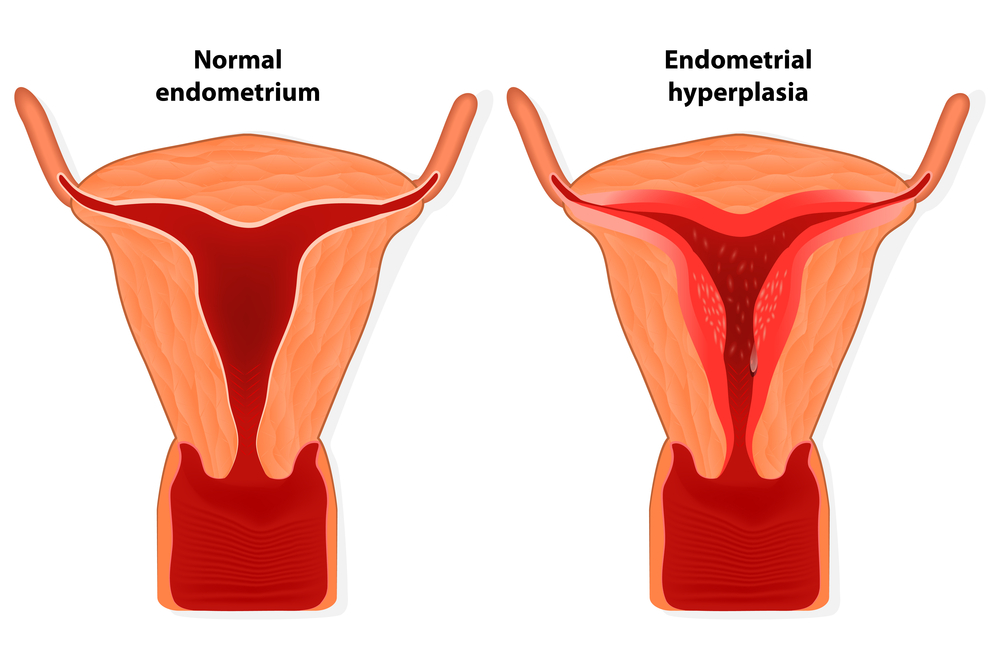In a recent study entitled “Dienogest reduces HSD17β1 expression and activity in endometriosis,” the authors investigated the mechanism of action of Dienogest, an oral synthetic progestin (synthetic progestogens that have progestogenic effects similar to those of progesterone) in alleviating endometrioses associated symptoms. They found that Dienogest inhibits key enzymes of the metabolism of estrogens, inhibiting the abnormal production of these hormones and thus exerting a therapeutical effect in endometriosis. The study was published in the Journal of Endocrinology.
Endometriosis is characterized abnormal growth of endometrial tissue outside the uterine cavity (the endometrium is the inner mucous membrane of the mammalian uterus) and is associated with pelvic pain, dysmenorrhea, dyspareunia and infertility. Endometriosis is dependent on the hormone estrogen — this hormone induces the growth of the endometrial lesions — and this is why menopause women experience a marked relief of endometriosis symptoms.
While there is no permanent cure for endometriosis, dienogest, a synthetic progestin that produces similar effects to those of the natural female hormone progesterone, is widely used to treat endometriosis and was reported to ameliorate endometriosis-associated pelvic pain.
Dienogest reduces endometriotic lesions through several biological mechanisms, including reducing the expression of inflammatory factors. Researchers investigated how dienogest impacts the estrogen hormone metabolism, specifically on important enzymes of this pathway. To this end, they treated stromal cells derived from ovarian endometrioma a form of endometriosis localized in the ovaries), endometrium with endometriosis (EE), and normal endometrium without endometriosis with dienogest. The samples were obtained from surgeries performed on 23 patients with ovarian endometriomas and their homologous endometrium, and from 19 normal endometria without endometriosis. They analyzed the expression of several key enzymes in the estrogen metabolic pathway, including aromatase, 17b-hydroxysteroid dehydrogenase 1 (HSD17b1), HSD17b2, HSD17b7, HSD17b12, steroid sulfatase (STS), and estrogen sulfotransferase (EST).
The team found that dienogest treatment inhibits the expression and activity of HSD17b1 in endometriosis. As a result, since it was previously reported that dienogest inhibits the enzyme aromatase in endometriosis, authors suggest that it also inhibits another key enzyme that regulates estrogen production. Dienogest therefore inhibits the abnormal estrogen production, leading to a therapeutic effect and symptom relief in endometriosis.
Glossary of Terms:
[wikibox lang=”en”]Dienogest[/wikibox]
[wikibox lang=”en”]Progestogen[/wikibox]
[wikibox lang=”en”]HSD17b1[/wikibox]

